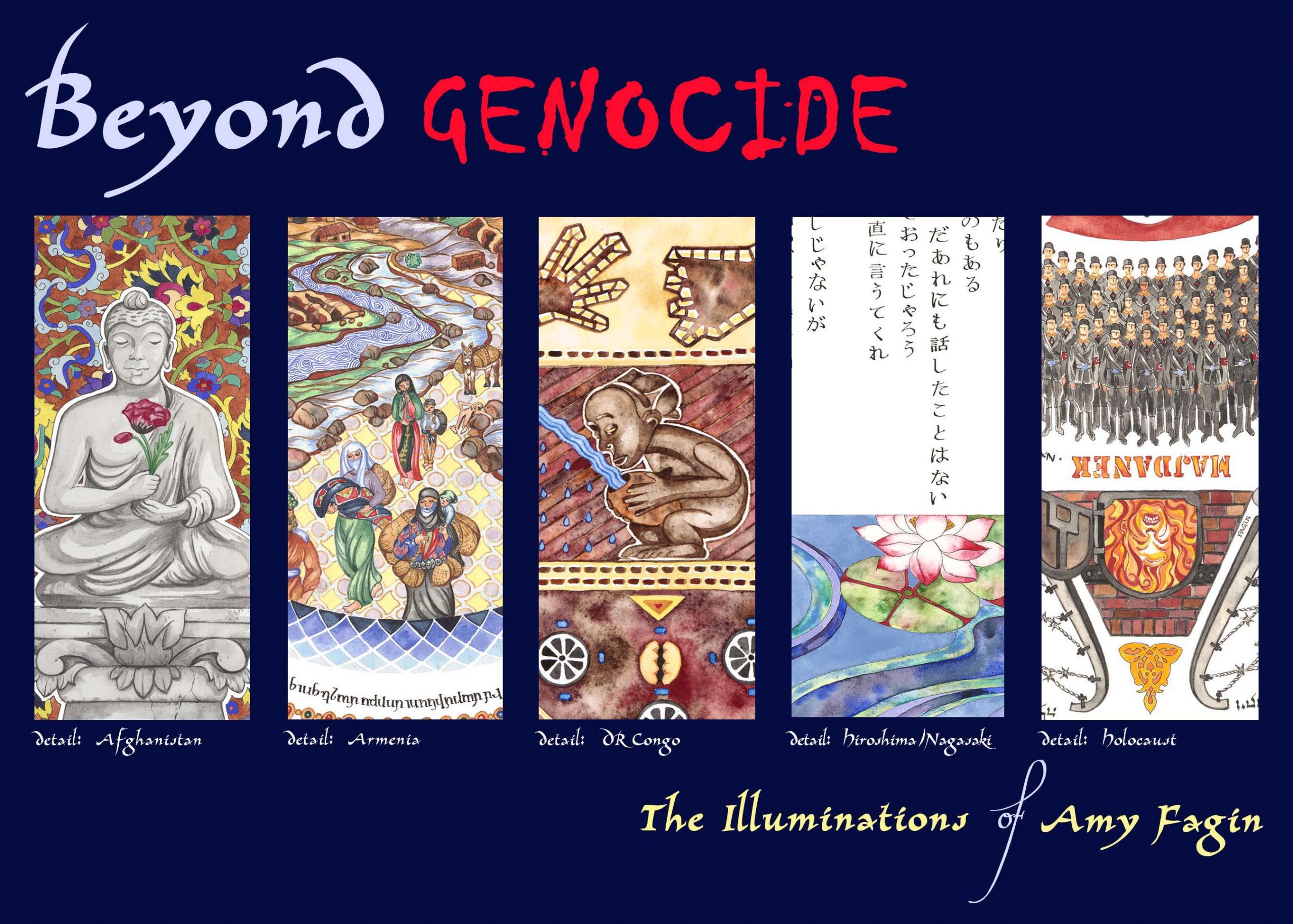On Music
Intuitively, the experience of creating, listening and contemplating music could not seem further distanced from the experience of genocide. Yet, the culture of sound dimensions, and of musical compositions could not be more “attuned” to capturing and expressing what might be the ultimate terror, the bottomless grief, the staged propaganda or the trans-generational legacy that echoes in the hearts and minds of all human beings when considering genocide in all of its ramifications. What could be considered the music of genocide? Was music available during genocidal massacres? What music was created by survivors, witnesses, or musicians from unrelated creative spheres? How has music been incorporated into understanding the paradox of opposites, transcendent soundscapes redefining the abyss of genocide? This section will introduce contributions in the literature on music, music theory, reflections and perceptions on the growing field of study of music and genocide.
Music and Genocide: Written in 2015 this seminal volume explores the relationship between music and genocide for its philosophy and aesthetics where the potential of music to represent idea and emotion when words are not available. Forging the relationships between music and meaning, historical and musicological documentation, “where the chronicle of genocide enters into song”; this volume circumnavigates testimony, musical propaganda, and remembrance toward a critical understanding of the many dimensions of musical narration in the context of genocide and post-genocide. .
Basic Music Theory for Beginners – The Complete Guide: This website is an introductory guide to basic music theory which explores “fundamental concepts musicians use to understand, analyze, perform and create music.” Learning the essential vocabulary for musical composition and comprehension will help the reader recognize and interpret musical modalities of expression, and musical communication between performers and listeners.
Echoes of Exile: Genocide and Displacement Studies in the Undergraduate Music Curriculum: This unique chapter contribution to the interface of music and genocide is outlined within the book Humanistic Pedagogy Across the Disciplines. It represents a critical review of assignments coordinated under academic/performance based music curricula from the “Echoes of Exile” concert. The genocide and refugee experience was traced through multiple generations with a wide range of musical testimonies, traditions and experiences.
Music and Genocide: Harmonizing Coherence, Freedom and Nonviolence in Incitement Law: This essay proposes a framework for normative development of incitement law to protect free expression while keeping incitement law focused on genocide prevention. The article draws attention to the problematic role that interpretive, musical expression can play in potentially inciting genocide and the need to legally delineate between respect for freedom of expression and the criteria for incitement of genocide.
Music and Torture in Nazi Sites of Persecution and Genocide in Occupied Poland, 1939-1945: Music was integrated into the Nazi system of camps, prisons and ghettos and used by the Nazis as an element of torture. This article from the journal World of Music analyses modalities of music and circumstances under which music was played. Specific uses of “music as torture” are brought to light through written and recorded survivor testimony.
When Music is Violence: New Yorker article correspondent Alex Ross reckons with sounds “from trumpets at the walls of Jericho to pop songs as torture in the Iraq Wars, sound can make a powerful weapon.”
An Initial Exploration of the Therapeutic Impact of Music on Genocide Orphans in Rwanda: This journal article in the British Journal of Guidance and Counselling investigated whether music had transformational meaning for participants. Two focus groups were brought together to explore how music making changes them. Implications of how music making transforms traumatized communities is thematically identified.
They Played for Their Lives: This film experience “artfully portrays how music saved the lives of young musicians” who played music in WWII ghettos and concentration camps. Through a series of interviews, live performances and compelling charcoal illustrations several stories are woven together to “illustrate the power of music to sustain the human soul”.
Screamers: System of a Down: This documentary film showcases how the rock band System of a Down used their songs and international popularity to raise awareness about the Armenian and other genocides.
Following the Ninth: In the Footsteps of Beethoven’s Final Symphony: This documentary film was crafted on 5 continents and in 12 countries. It represents the stories of four people whose lives were healed by the message of Beethoven’s 9th Symphony that All People are Connected. “Following the Ninth” conveys the power of music and human resilience during dark times.
Music, Nostalgia and Memory : “How are our personal soundtracks of life devised? What makes some pieces of music more meaningful to us than others? This book explores the role of memory, both personal and cultural, in imbuing music with the power to move us. Focusing on the relationship between music and key life moments from birth to death, the text takes a cross-disciplinary approach, combining perspectives from a ‘history of emotions’ with modern day psychology, empirical surveys of modern-day listeners and analysis of musical works. The book traces the trajectory of emotional response to music over the past 500 years, illuminating the interaction between personal, historical and contextual variables that influence our hard-wired emotional responses to music, and the key role of memory and nostalgia in the mechanisms of emotional response.” (Palgrave MacMillan)




